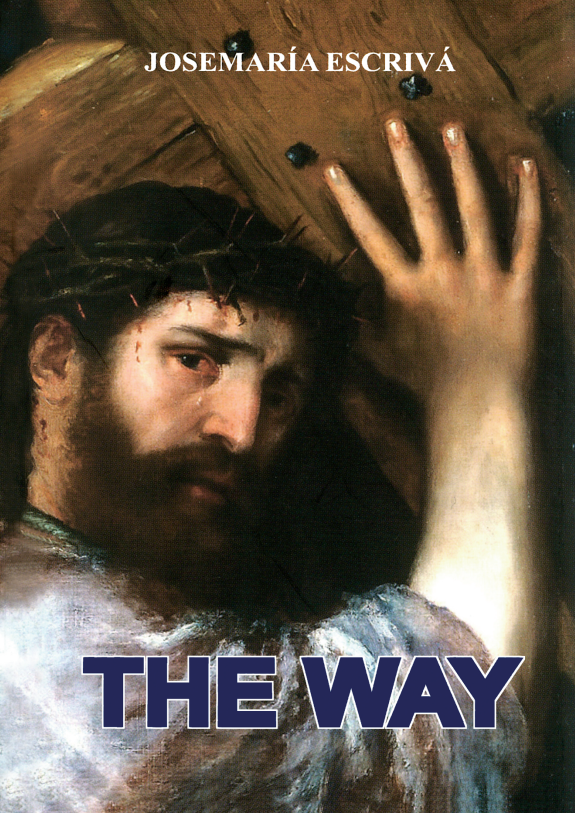The story of The Way, one of the most influential books of faith ever written, begins with the story of Josemaría Escrivá.
Josemaría Escrivá was a Catholic priest born in Spain in 1902. He’s best known for being the founder of Opus Dei, a Catholic organization whose mission is to spread the Christian message that every person is called to holiness and that every honest work can be sanctified.
Escrivá grew up in a loving family but encountered a great deal of hardship, including the death of his three younger sisters.
About five years later, when he was still a teenager, Escrivá had a powerful experience that united his heart to God’s will. Following a snowstorm, Escrivá noticed footprints in the snow, left behind by a discalced Carmelite monk.
The image was striking and prompted Escrivá to consider his own vocation.
“If others sacrifice so much for God and their neighbour, couldn’t I do something too?” he wondered. “I began to have an inkling of what Love is, to realise that my heart was yearning for something great, for love.”
This led Escrivá to pursue a vocation as a priest in 1925.
Priesthood, Opus Dei and Writing
During Escrivá’s time as a priest, the Spanish Civil War broke up, leading to some persecution of Catholics and interrupting the work that he began in 1928: building Opus Dei.
Peter Berglar, author of Opus Dei: Life and Works of Its Founder Josemaría Escrivá, described how Escrivá was moved by the Gospel passage of Jesus granting sight to Bartimeus, and how Escrivá sought to clearly see what God was asking of him.
“Escrivá always insisted that Opus Dei was not his own invention, that it was not the consequence of a series of speculations, analyses, discussions or experiments, and that it was not the result of good and pious intentions,” he said. “He clearly implied that the actual founder was God himself and that the commission of the task to a young priest was a supernatural act, a unique grace.”
Much of Escrivá’s life was dedicated to growing Opus Dei; the Vatican formally approved it in 1950 and Escrivá later moved to Rome.
Opus Dei is predicated on the belief that “everyone is called to be holy, to serve the Church, and spread the joy of the Gospel, right in their ordinary lives.”
These desires–to be holy, serve the Church and spread the Gospel–in our everyday lives manifest in Escrivá’s writings, including his most famous work, The Way.
The Way, Its Chapters and Points
First published in 1934, The Way has been called “Kempis of modern times”, a reference to the Imitation of Christ, the massively popular medieval book that is the best-selling religious work outside of the Bible.
The Way is composed of 46 different chapters on a multitude of topics, including prayer, Holy Mass, obedience, the will of God, and perseverance.
Those 46 chapters contain 999 “considerations” or points, most of which pertain to Christian piety. There are 999 of these maxims because Escrivá had such fondness for the Trinity.
The format makes The Way extremely easy and enjoyable to read: Chapters pass quickly and the points are simple but profound.
For example, take, point 164, in the Heart chapter:
164 How goes your heart? … Don’t be worried. The saints –who were perfectly ordinary, normal beings like you and me–also felt those natural inclinations. And if they had not felt them, their supernatural reaction of keeping their heart–body and soul–for God, isntead of giving it to creatures, would have had little merit.
That’s why, once the way has been seen, the weakness of the heart should be no obstacle for a soul filled with determination and completely in love.
The book has spawned a Twitter/X account dedicated to tweeting out these points and considerations each day.
In addition to The Way, Escrivá was the author of such books as Furrow and Holy Rosary. His last published work, The Forge, was published in 1987.
Famous Quotes from The Way
The Way is well-known for its simple but powerful considerations about faith and everyday life.
- “Do everything for Love. Thus there will be no little things: everything will be big. Perseverance in little things for Love is heroism.”
- “How beautiful it is to give up this life for the life.”
- “Everything that doesn’t lead you to God is an obstacle. Tear it out and cast it far from you.”
- “Make few resolutions. Make specific resolutions. And fulfill them with the help of God.”
- “To reform. Every day a little. This has to be your constant task if you really want to become a saint.”
Quotes About The Way and Josemaría Escrivá
- “It will certainly do a great deal of good by its simplicity, which is a true medium for the Gospel message. – Thomas Merton
- “Josemaría Escrivá understood more clearly that the mission of the baptized consists in raising the Cross of Christ above all human reality and he felt burning within him the impassioned vocation to evangelize every human setting.” – Pope John Paul II
- “Msgr. Escrivá, with Gospel in hand, constantly taught: ‘Christ does not want us simply to be good, he wants us to be saints through and through. However, he wants us to attain that sanctity not by doing extraordinary things, but rather, through ordinary common activities. It is the way that they are done which must be uncommon.’ There, (in the middle of the street), in the office, in the factory, we can be holy provided we do our job competently, for love of God, and cheerfully, so that everyday work does not become ‘a daily tragedy’, but rather ‘a daily smile.’” – Pope John Paul I
Where to Buy Josemaría Escrivá’s The Way
The Way is the perfect book to accompany your Lenten prayer journey. Shipping is free when you purchase from the link below:
